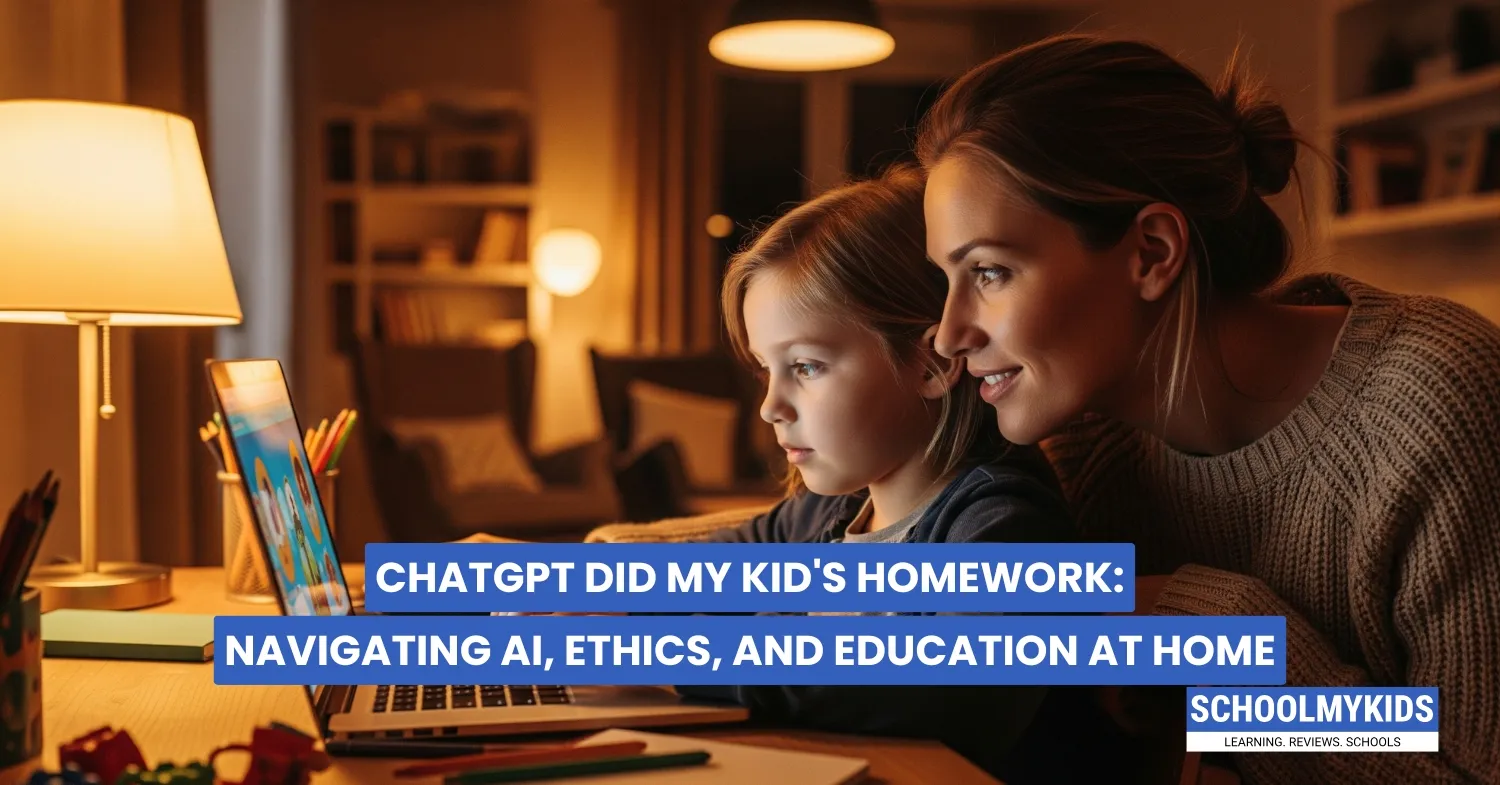You just found out your 12-year-old used ChatGPT to write their entire history report. Your teenager claims "everyone's doing it" when you catch them getting math solutions from AI. If this sounds familiar, you're not alone, and you're definitely not overreacting.
What's Different About ChatGPT-5?
ChatGPT-5 isn't just better at writing essays. It can solve complex math problems step-by-step, explain scientific concepts in kid-friendly language, help with coding projects, and even generate creative writing that sounds surprisingly human. It's like having a very smart study buddy available 24/7, which is exactly why kids love it and why it scares parents.
The reality is that AI isn't going away. Your kids will use these tools throughout their education and careers. The question isn't whether they should learn to use them, but how to use them properly.
How Kids Are Really Using AI for Homework
Kids are using ChatGPT to:
- Get complete answers to math problems without showing work
- Generate entire essays and reports
- Translate foreign language assignments
- Create presentations and project ideas
- Get explanations for concepts they don't understand
Some of this is helpful learning. Some of it is basically cheating. The trick is teaching your kids the difference.
The Real Problem
The biggest issue isn't that kids are using AI; it's that they're missing the point of homework entirely. Homework isn't busy work designed to torture families during dinner time. It's practice. It's how kids build confidence, develop problem-solving skills, and learn to work through challenges.
When your child uses AI to write their entire book report, they're not learning to analyze literature, organize thoughts, or express ideas clearly. They're learning to take shortcuts. And shortcuts don't build the mental muscles they'll need for tests, college, and real life.
Setting Smart Boundaries
Here's how to handle AI use at home without becoming the homework police:
- Start with an honest conversation: Ask your kids how they're already using AI. Don't lecture, just listen. You might be surprised by their honesty if you approach it with curiosity instead of anger.
- Create clear rules together: Work with your kids to establish when AI use is okay and when it isn't. For example, using it to understand a concept is fine, but using it to write entire assignments isn't.
- Focus on the learning process: Instead of banning AI completely, teach your kids to use it as a starting point, not an endpoint. They can ask ChatGPT to explain photosynthesis, but they need to write about it in their own words.
- Make consequences meaningful: If your child uses AI inappropriately, the consequence should relate to learning. Have them redo the assignment properly, or explain the concept to you without AI help.
Teaching Ethical AI Use
Your kids need to understand that using AI isn't just about following rules; it's about developing integrity. Here are some practical guidelines:
- Always cite AI assistance: Just like they'd cite a book or website, kids should mention when they used AI to help with homework. This teaches transparency and academic honesty.
- Use AI to learn, not to replace learning: It's okay to ask ChatGPT to explain a math concept differently or to brainstorm ideas for a creative project. It's not okay to copy-paste AI responses as final answers.
- Verify AI information: ChatGPT can make mistakes. Teaching kids to fact-check AI responses develops critical thinking skills they'll need forever.
- Respect assignment goals: Help your kids understand what each assignment is trying to teach them. If it's a writing assignment, the goal is to practice writing – not to get a perfect essay from AI.
Practical Tips for Different Age Groups
Elementary school kids need simple rules and lots of supervision. Consider keeping AI use to family time where you can guide the conversation and learning process.
Middle schoolers can handle more independence, but still need clear boundaries. Create specific rules about which subjects or types of assignments allow AI assistance.
High school students should be learning to make ethical choices independently. Focus conversations on long-term consequences and personal integrity rather than strict rules.
Working with Teachers
Don't handle this alone. Most teachers are dealing with AI in their classrooms too, and want to partner with parents. Reach out to understand their policies and share what you're seeing at home. Many schools are updating their guidelines as they figure out how to integrate AI positively into education.
Conclusion
AI isn't the enemy of education. It's a tool that can enhance learning when used thoughtfully. Your job as a parent isn't to shield your kids from AI, but to help them develop the wisdom to use it well.
The skills your kids need most in an AI world aren't about avoiding technology; they're about thinking critically, communicating clearly, solving problems creatively, and making ethical choices. These are exactly the skills that good homework assignments are designed to build.
So the next time you catch your kid using ChatGPT for homework, take a deep breath. This isn't a crisis; it's a teaching moment.








Be the first one to comment on this story.